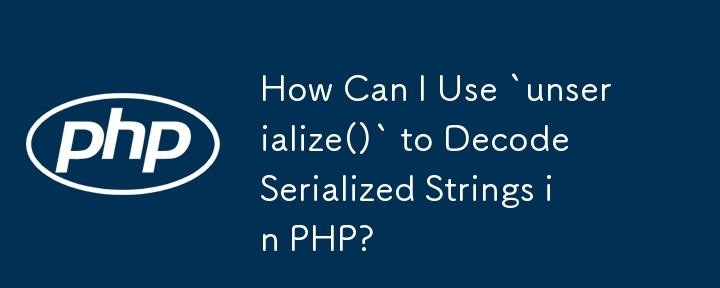

Decoding Serialized Strings: Understanding and Using unserialize()
Unraveling serialized strings can be encountered in programming. These strings often contain complex data structures that need to be decoded before they can be used. Let's delve into the details of serialized strings and how to unserialize them using the unserialize() function.
The example provided, "a:2:{i:0;s:7:"Abogado";i:1;s:7:"Notario";}", represents a serialized string. To unserialize it, we employ the unserialize() function, as seen below:
$str = 'a:2:{i:0;s:7:"Abogado";i:1;s:7:"Notario";}';
print_r(unserialize($str));This will produce the following output:
Array ( [0] => Abogado [1] => Notario )
Key Points:
The above is the detailed content of How Can I Use `unserialize()` to Decode Serialized Strings in PHP?. For more information, please follow other related articles on the PHP Chinese website!




